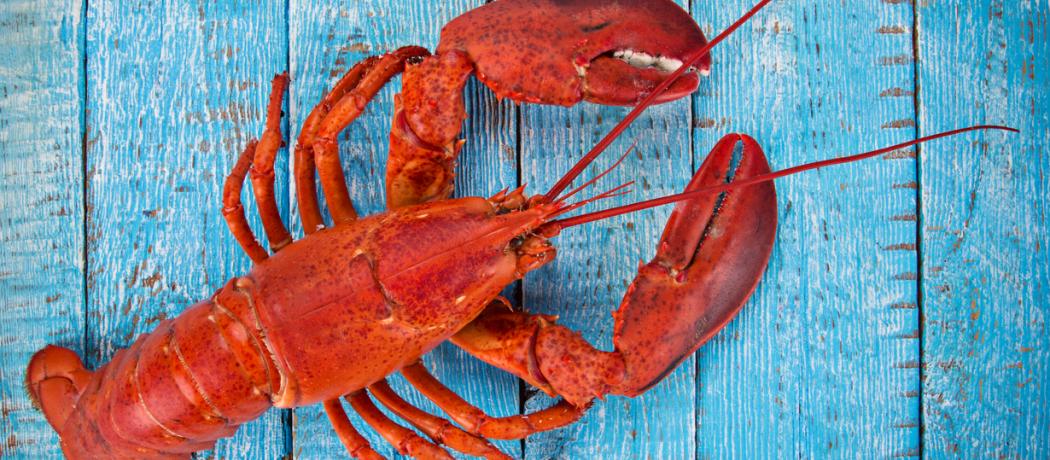Can lobsters feel pain? The government of Switzerland seems to have decided that, yes, they can. It recently passed a law that lobsters have to be stunned or killed before being placed into boiling water.
A news item on this more humane treatment of lobsters reminded me that in cognitively impaired humans the assessment of pain perception capability still poses special challenges. Specifically, the relationship between pain and the very common screaming and wailing of persons with dementia is not understood. Not knowing what these common vocal behaviors are expressing creates a great deal of stress to family members and caregivers, and in residential settings, to other patients.
Physicians looking after medical or surgical conditions in their patients with dementia are particularly frustrated by not being able to understand the possible relationship between vocalization and pain. My wife, in the grip of her dementia, is being cared for at home. She is a vocalizer. It is usually the typical “AAAA” type of sound, and she may go on saying “AAAA” for a few minutes now and then or she may go on for a few hours without us understanding why. We can sometimes interrupt her sounds by caressing her. Her occasional smiles then make our day, but then she is back at AAAA-ing.
I did a literature search to learn about vocalization in dementia patients. Only two relevant academic articles appeared in the literature, both written by Montreal psychiatrist Dr Bernard Groulx in 2004 and 2005 and published in The Canadian Alzheimer Disease Review. Searching for the cause of this behavior, Dr Groulx tried to answer the five Ws: who is with (or absent from) the patient, what helps or makes it worse, where and when does it occur, and the all-important why: is there pain, constipation or a wet diaper, undernourishment, feelings of insecurity, uncomfortable restraints, or some medical, possibly painful, condition or other factors, such as an under- or over-stimulating environment, or disturbed hygiene or meal routines. I may add to this list of possibilities the nature of dementia: the frightening state of confusion for months or years on end.
I have charted my wife’s vocalizations occurring over 24-hour periods for 2 weeks in an attempt to pinpoint causative agents in her daily routine. Definitely more episodes occurred while she was being attended to in the morning and evening clean-ups, but there were numerous other short or longer vocalization episodes during the day, and also during the night, without any obvious cause and with no relationship to the presence of the various attending caregivers. Then 3 weeks ago we had happen what amounts to a catastrophe: my wife fell and broke her hip. Now the question of expression of pain through vocalization has come to the fore. I saw her immediately after her fall. She was visibly frightened, grabbed my hand, and in spite of her aphasia whispered, “Please, help me.” There were no “AAAA” sounds. She did not complain of pain in any understandable way, and during her 4-day hospital stay, including the periods before and after her surgery, she did not require any pain medication. She made the “AAAA” sounds when the physiotherapist began some leg movement exercises, and since her return home she has been very vocal when she is being turned in her bed and during her exercises. We have watched her face for reactions of pain but have not seen any grimaces or other readable signs of suffering. So, in our home, with my dear wife we still have no clues as to the cause, prevention, or treatment of her ongoing vocalization and we are unclear about her threshold of pain.
In the meantime in Switzerland they seem to know about the feelings of lobsters.
—George Szasz, CM MD
Postscript: I tried to contact Dr Groulx by phone to discuss vocalization. Unfortunately, the doctor most interested in this aspect of dementia died in 2015 at age 65.
Suggested reading
Groulx B. Screaming and wailing in dementia patients (Part I). Can Alzheimer Dis Rev 2004:11-14 Groulx B. Screaming and wailing in dementia patients (Part II). Can Alzheimer Dis Rev 2005:7-11. Quirks and Quarks, CBC Radio. Accessed 21 Nov 2018. www.cbc.ca/radio/quirks/do-lobsters-feel-pain-fighting-cocaine-addiction....
This posting has not been peer reviewed by the BCMJ Editorial Board.

